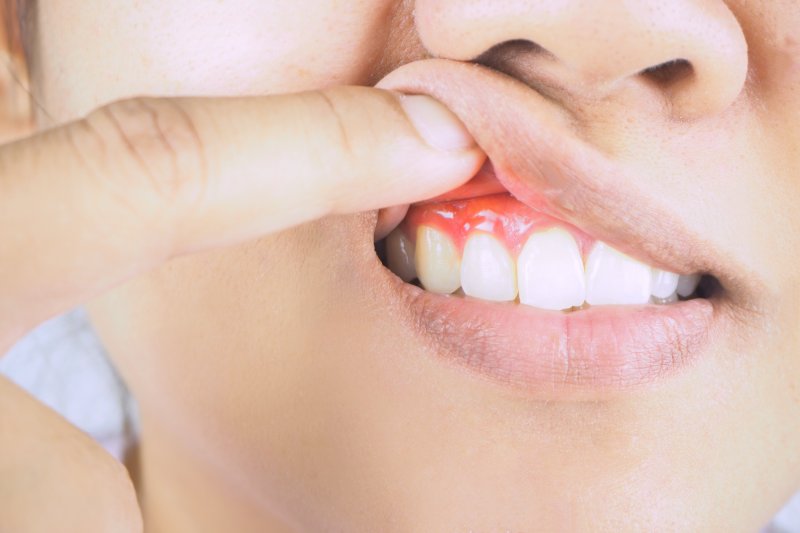
September is time for back-to-school, but it’s also an opportunity for patients of all ages to learn more about protecting their gums! This month is National Gum Care Month, and to celebrate, your dentist wants to make sure you understand the signs of needing gum disease treatment in Metairie – and what could happen if you don’t have the procedure done.
How Will You Know if You Have Gum Disease?
The bad news is that in many cases, gum disease is silent. That means you might not see any symptoms until the more advanced stages that are harder to treat. That said, there are a few warning signs you can watch for:
- Red and/or swollen gum tissue
- Tender gums or other kinds of pain in your mouth
- Bleeding often while brushing, flossing or eating hard food
- Teeth that look longer than they used to (which could mean that your gums are receding)
- Loose or separating teeth
- Sores in the mouth
- Persistent bad breath
Again, you might not experience all or any of these symptoms. That’s why it’s important to have at least two dental checkups a year; your dentist can find issues that you’ve overlooked and can give you the best chance of identifying and treating gum disease quickly.
What If Gum Disease is Left Alone?
It’s very unfortunate that many people don’t realize they have gum disease until it’s too late. The earliest stage, gingivitis, is relatively mild, but if it advances to periodontitis, the bone in your jaw could be destroyed. Eventually, you could start losing your teeth.
Over the long term, gum disease has been tied with many potentially severe health issues. For example, many studies have found that patients with infected gums are at a higher risk for heart attacks, stroke and other cardiovascular problems. While a direct causal relationship hasn’t been fully confirmed yet, it’s undeniable that poor oral health tends to be linked to an overall unhealthy body.
How Can Gum Disease Be Prevented?
Fortunately, there are plenty of ways that you can reduce your risk of gum disease, such as:
- Brushing for two to three minutes at least twice day and making sure to clean along the gumline
- Flossing daily to clean spaces a toothbrush can’t reach
- Using a mouth rinse to reduce bacteria and plaque levels in your mouth
- Eating foods with plenty of vitamin A and C while limiting sugary and starchy snacks
- Avoiding cigarettes and other forms of tobacco
- Attending regular dental checkups and cleanings
If you think you might have gum disease despite your best efforts, call your dentist as soon as possible; you might end up needing treatment. In general, you should never take any chances when it comes to your oral health; be proactive in protecting your gums so you can keep your smile healthy and bright!
About the Author
Dr. James Nelson received his Doctor of Dental Surgery at the LSU School of Dentistry and is currently a member of the Louisiana Dental Association. He believes that the most important part of providing excellent dental care is building trust with his patients. If you’re concerned about gum disease or want to schedule a checkup, you can contact his practice, Nelson Dental Care, through his website or by calling (504) 887-3311.
